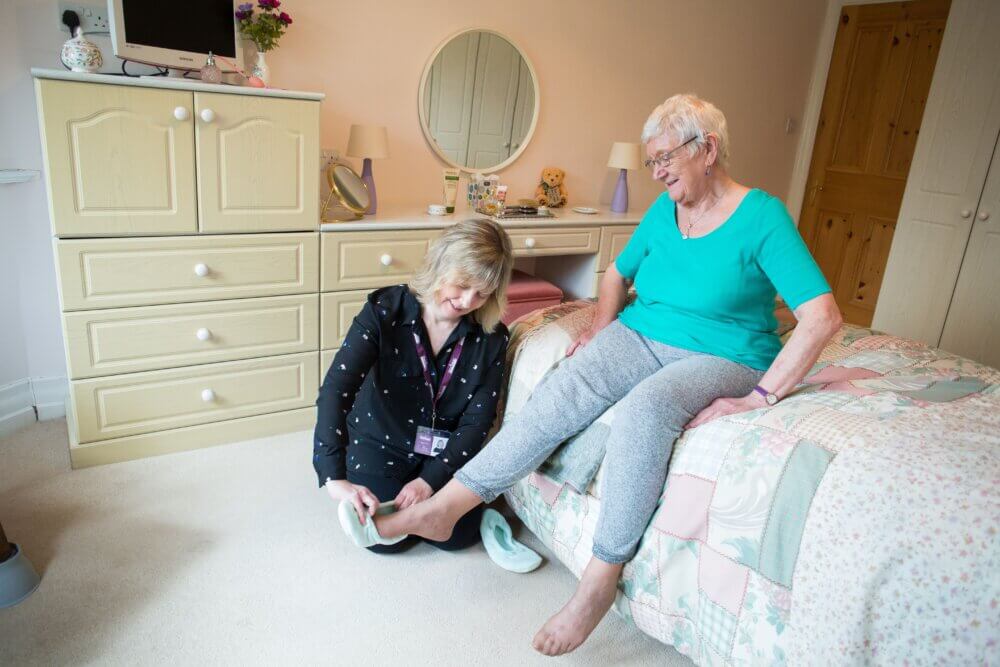NHS bed shortage eased by families turning to Home Instead
Many people in hospital are well enough to be discharged, but unfortunately the discharge care needs can’t be met. Read what Home Instead can do to help.

In the last few months, as more older people have been admitted to hospital for winter illnesses or a decline in health over the festive period, we have seen a rise in enquiries from families looking for hospital discharge or reablement support as they struggle to get elderly relatives home again, from hospital.
Data from the Institute for Government found that one in seven hospital beds were occupied by someone who was eligible for discharge during the winter of 2022/23. Many people in hospital are well enough to be discharged, but unfortunately the discharge care needs can’t be met.
Many individuals are deemed unsafe to be discharged home, until some sort of care is put in place. This can take weeks and can have a serious impact on the number of beds available in hospitals. It can also have a negative impact on the person who is ready to come home by spending more time in hospital than needed. Last winter, two thirds of Home Instead’s national network experienced an increase in demand for consultation requests from prospective clients or their families specifically referencing hospital discharge or reablement support.
We are able to visit a prospective client in the hospital to carry out a needs assessment and consultation, enabling them to say they have care and support in place and can now be discharged safely. When they return home, we finish any remaining risk assessment of the property and can start right away with their handpicked Care Professional. This enables NHS discharge teams to use community provision available locally for people who need it more, and also enables the freeing up of beds to alleviate the pressure faced by hospital staff.
Mike Keig, owner of Home Instead Weston super Mare says: “Clearly, hospitals are under huge pressure. When people are in hospital, it’s really important to get them home as quickly as possible once they are medically fit to do so.
“It all comes down to better integration of the health and social care systems. More NHS discharge teams are looking at us to give patients a safe return home, which is reassuring because historically we have been overlooked. I’m excited about our future of working more closely with the NHS and supporting more people in the community.”
Home Instead Weston super Mare’s post hospital discharge care includes personal care, such as assistance with washing and dressing, catheter care and stoma care, medication management, plus diabetes monitoring and blood pressure monitoring delivered by Care Professionals who have received additional training.
“It is our aim to support our community as a whole, and this includes our local hospital. If we can help get people home from hospital when needed rather than delaying this, then we are helping not only the individual, but our precious NHS resources as well.” Mike Keig.
For more information on the services provided please call us for a friendly chat on 01934 526892 or fill out one of the enquiry forms located on this page.

Areas We Serve
Weston super Mare, Burnham-on-Sea, Banwell, Winscombe, Bleadon & the surrounding areas
BS21 5, BS21 6, BS21 7, BS22 6, BS22 7, BS22 8, BS22 9, BS23 1, BS23 2, BS23 3, BS23 4, BS24 0, BS24 6, BS24 7, BS24 8, BS24 9, BS29 6, BS48 2, BS48 4, BS49 4, BS49 5, TA8 1, TA8 2 and TA9 4
202 High St, Worle, Weston-super-Mare BS22 6JE, UK
01934 526892